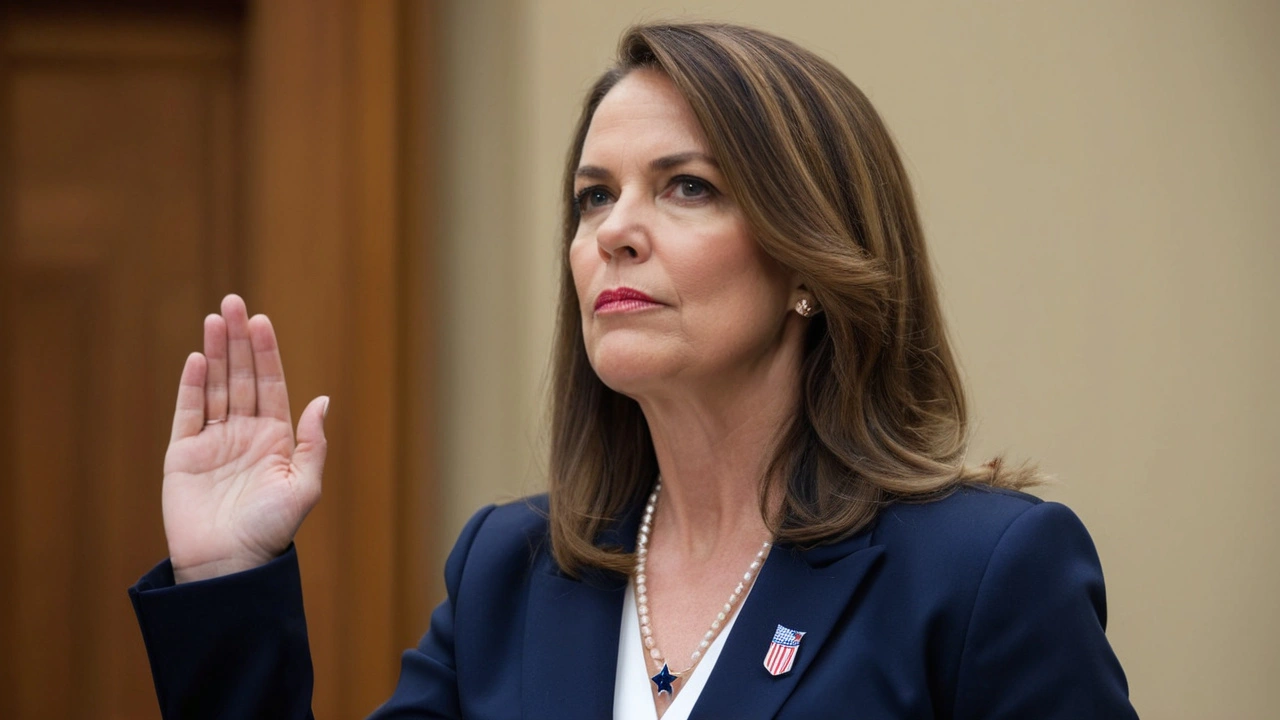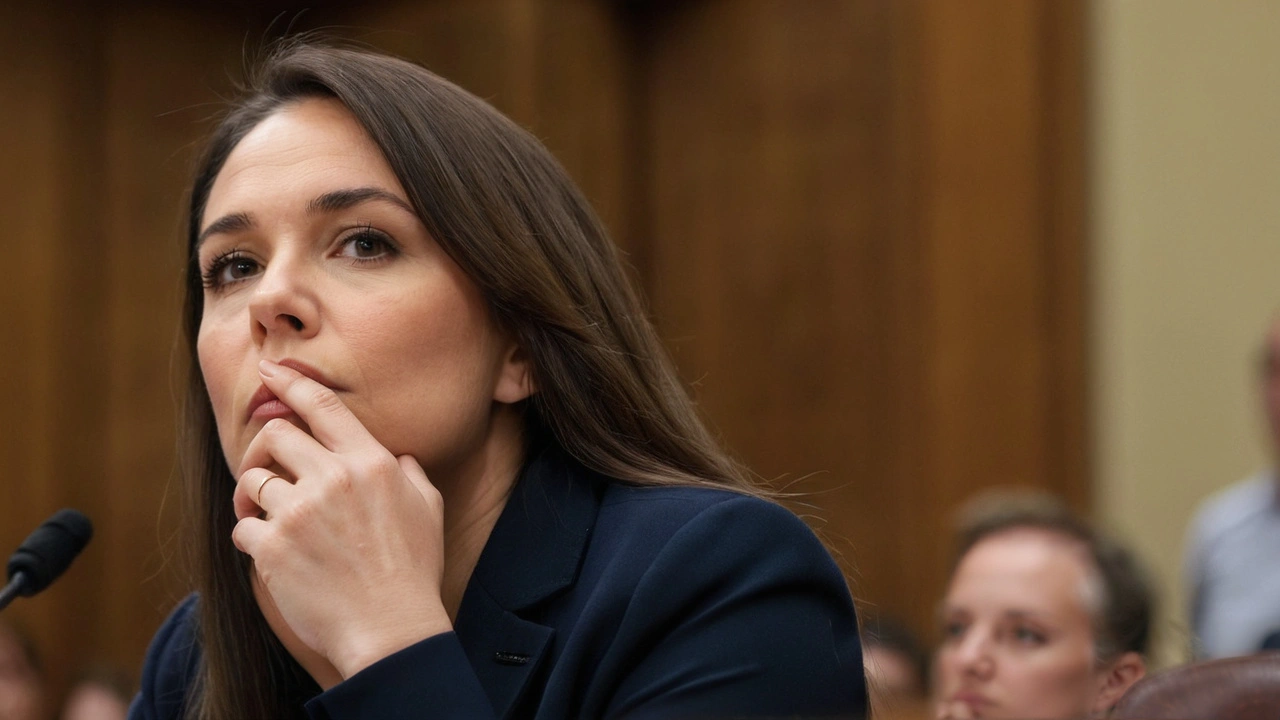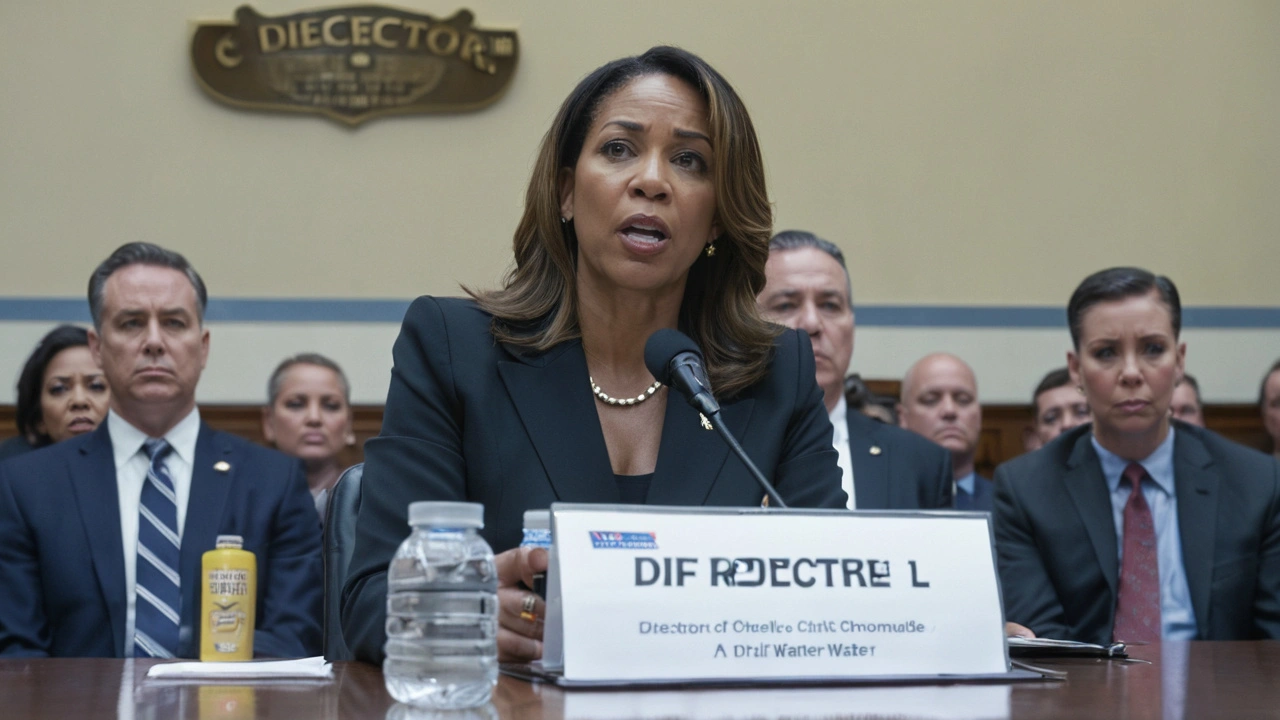Secret Service Director Kimberly Cheatle Resigns Amid Heavy Scrutiny
The U.S. Secret Service faces a momentous upheaval with the resignation of its Director, Kimberly Cheatle. Her departure follows an intense wave of criticism after the agency failed to prevent an assassination attempt on former President Donald Trump during a high-profile rally on July 13. This tragic incident left one attendee dead and critically injured two others, sending shockwaves through the political landscape and prompting fervent calls for leadership changes within the Secret Service.
During the rally, which drew a massive crowd, the lack of adequate security measures became tragically evident. Critics argue that comprehensive lapses and organizational failures within the Secret Service contributed to the deadly breach. Following the event, Cheatle described the incident during a House oversight hearing as 'unacceptable' and branded it 'the most significant operational failure at the Secret Service in decades.' Despite her initial resolve to remain and rectify the agency's shortcomings, the mounting pressure culminated in her resignation.
Cheatle's decision to step down has not only spotlighted the grave security failings but also fueled a broader debate over accountability and leadership within the Secret Service. For many, her resignation serves as a stark acknowledgment of the agency's shortcomings in anticipating and neutralizing threats. In her parting statement, Cheatle noted, 'the buck stops with me,' thus underlining her acceptance of responsibility for the catastrophic breach. Her departure, however, has been met with mixed reactions across the political spectrum.
Calls for Accountability and Critiques of Leadership
The days leading up to Cheatle’s resignation were marked by a barrage of critiques, questioning her capacities and demanding a revamp of the agency's security protocols. Prominent conservative figures, including Rep. Tim Burchett, were vociferous in their criticism, raising questions not only about Cheatle's leadership abilities but, controversially, about her as the first woman to helm the agency. Such critiques brought to the fore an underlying gender bias, further complicating the public dialogue around her leadership.
Rep. Burchett and his supporters argued that Cheatle's leadership fell short of the rigor and strategic foresight necessary to safeguard high-stakes events. They demanded comprehensive reforms within the agency to prevent similar tragedies in the future, stressing the need for seasoned leadership that could foresee and mitigate such threats. This tragic incident has undeniably triggered a reevaluation of the robust measures and proactive stances that are quintessential for the Secret Service's operational edifice.

A House Oversight Hearing Highlights Security Lapses
The House oversight hearing where Cheatle testified turned into a crucible of intense scrutiny and accountability. During her address, Cheatle expressed deep regret over the incident, candidly admitting the scale of the failure. Describing the event as a pivotal low point, she invoked a poignant rhetoric, marking it as 'our darkest hour.' Her testimony wasn't merely an admission of fault but also a desperate plea for systemic change within the organization.
In detailing the security lapses, Cheatle pointed to several critical failures: insufficient intelligence gathering, flawed risk assessment, and inadequate crowd control measures. The essence of her testimony was an acknowledgment that these errors collectively paved the way for the tragedy to unfold. Her commitment to overhauling these systemic flaws, although deeply earnest, could not outweigh the chorus of voices urging for new leadership to initiate a fresh chapter of accountability within the Secret Service.
The Broader Impact on the Secret Service
Cheatle's resignation has undoubtedly set the stage for a broader introspective look within the ranks of the Secret Service. The rally incident underscored the perennial need for vigilance, adaptability, and proactive threat anticipation in protecting national figures. It has invited a wave of internal audits and external reviews aimed at diagnosing the depth of systemic flaws and instituting corrective measures essential for restoring public trust in the agency.
As the agency navigates this crisis, there is a palpable push for enhanced training programs, better intelligence integration, and collaborative measures with local law enforcement to fortify security frameworks. The resignation has amplified these discussions, signaling that significant reforms might be on the horizon. In tandem with leadership changes, these potential reforms are expected to recalibrate the agency's strategies and ensure astute threat neutralization capabilities during high-risk events.

Public Outrage and the Quest for Justice
The public's response to the rally tragedy and Cheatle's resignation has been marked by widespread outrage and a clamor for justice. The incident served as a stark reminder of the profound responsibilities shouldered by the Secret Service and the dire consequences of operational failures. Many are advocating for in-depth investigations to unearth the nuances of the lapses that led to the security breach.
This quest for justice is also mirrored in the demand for transparency and accountability, with calls for regular public disclosures about the agency's security readiness and threat assessment methodologies. Families of the victims and the broader public are seeking assurances that such a catastrophic failure cannot reoccur. They are urging for the prosecution of any individuals whose negligence or misconduct might have contributed to the incident.
Looking Forward: The Future of the Secret Service
In the aftermath of Cheatle's resignation, the focus has shifted to the future and the imperative for leadership that will steer the agency towards regained competence and public trust. The search for a new director brings forth the opportunity to inject fresh perspectives and enhance the agency's operational blueprint.
There is an anticipatory buzz around potential candidates who might bring a blend of seasoned experience and innovative strategies to the table. Emphasis is expected on candidates with robust backgrounds in intelligence and national security, poised to tackle the evolving landscape of threats in a dynamically shifting world. Observers are keenly watching how the transition in leadership will manifest in operational reforms and a renewed commitment to the agency’s core mandate.
As the Secret Service grapples with this era of introspection and recalibration, there lies a crucial opportunity to fortify its safeguarding mechanisms, restore its storied legacy, and reinforce the sacred trust placed in it by the American public. The coming months will be pivotal in shaping the trajectory of an agency at the crossroads of duty, accountability, and redemption.


Shelby Mitchell
July 24, 2024 AT 21:23mona panda
July 25, 2024 AT 20:55Evangeline Ronson
July 26, 2024 AT 19:05Cate Shaner
July 27, 2024 AT 08:07Thomas Capriola
July 27, 2024 AT 13:11Rachael Blandin de Chalain
July 27, 2024 AT 21:17Soumya Dave
July 28, 2024 AT 18:46Chris Schill
July 29, 2024 AT 06:37cimberleigh pheasey
July 29, 2024 AT 10:26Tom Gin
July 29, 2024 AT 18:16Alex Alevy
July 30, 2024 AT 12:42Aileen Amor
July 30, 2024 AT 16:48Danica Tamura
July 31, 2024 AT 12:01William H
July 31, 2024 AT 19:35Katelyn Tamilio
August 1, 2024 AT 02:01Michael Klamm
August 1, 2024 AT 12:44Shirley Kaufman
August 1, 2024 AT 17:52